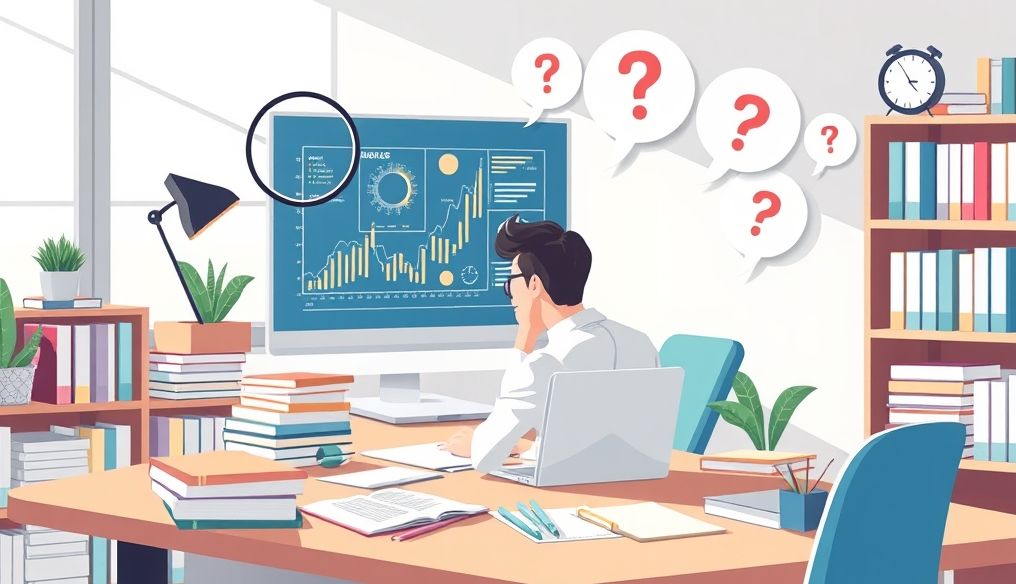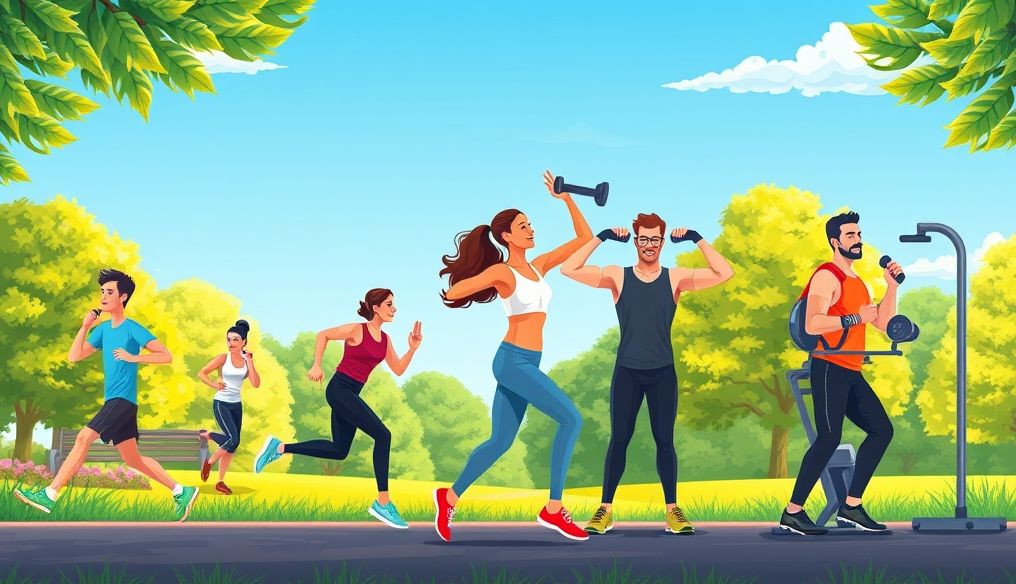Introduction: The Importance of Critical Thinking in Today's World
In an increasingly complex world with a flood of information, critical thinking has become an indispensable skill. It is no longer enough to passively consume information; we must be able to analyze it, evaluate it, and make informed decisions based on it. Critical thinking is not just an academic skill, but a necessary tool for success in personal and professional life.
Chapter 1: What is Critical Thinking?
Defining Critical Thinking
Critical thinking is the process of analyzing and evaluating information and ideas objectively and systematically, with the aim of reaching logical conclusions and informed decisions. Critical thinking involves the ability to:
- Analyze arguments and evidence.
- Identify implicit and hidden assumptions.
- Evaluate the credibility of sources.
- Distinguish between facts and opinions.
- Form logical conclusions.
- Solve problems effectively.
Components of Critical Thinking
Critical thinking consists of several key components, including:
- Analysis: The ability to break down complex information into smaller parts and understand the relationships between them.
- Evaluation: The ability to judge the quality of information and evidence presented.
- Inference: The ability to draw logical conclusions based on the available evidence.
- Interpretation: The ability to understand and interpret information correctly.
- Self-Regulation: The ability to monitor and evaluate your own thinking process and adjust it as needed.
Chapter 2: Why You Need to Develop Critical Thinking Skills
Personal Benefits of Critical Thinking
Developing critical thinking skills can significantly improve your personal life. It helps you to:
- Make better decisions in your daily life.
- Solve problems more effectively.
- Understand different perspectives better.
- Avoid falling victim to misinformation.
- Increase your self-confidence and abilities.
Professional Benefits of Critical Thinking
In today's competitive job market, critical thinking is a highly sought-after skill. It helps you to:
- Excel in your work.
- Solve complex problems in the workplace.
- Innovate and be creative.
- Work effectively within a team.
- Advance in your career.
Chapter 3: How to Start Developing Critical Thinking Skills
Step 1: Be Skeptical
Do not accept any information blindly. Always ask yourself: What is the source of this information? Is there any evidence to support it? Is there any potential bias?
Step 2: Look for Evidence
Do not rely on one person's opinion or one source of information. Look for multiple sources and compare them. Look for evidence that supports or refutes the claims made.
Step 3: Analyze Arguments
Try to understand the arguments presented. What are the premises? What are the conclusions? Do the premises support the conclusions? Are there any logical fallacies?
Step 4: Be Open to New Ideas
Do not reject new ideas just because they conflict with your current beliefs. Be willing to change your mind if the evidence suggests it.
Chapter 4: Practical Strategies for Enhancing Critical Thinking
Asking Questions
Asking questions is the essence of critical thinking. Ask yourself questions like:
- What is the purpose of this claim?
- What evidence supports this claim?
- What are the implicit assumptions?
- Are there any alternative explanations?
- What are the implications of this claim?
Analyzing Assumptions
Every argument or claim is based on assumptions. Try to identify these assumptions and evaluate whether they are correct or not. Assumptions are often unstated, so you need to be careful in looking for them.
Identifying Logical Fallacies
Logical fallacies are errors in reasoning that can lead to incorrect conclusions. Learn how to recognize common logical fallacies, such as:
- Straw Man: Misrepresenting an opponent's argument to make it easier to attack.
- Appeal to Authority: Relying on the opinion of a person in authority without providing evidence.
- Hasty Generalization: Drawing a general conclusion based on a small number of cases.
- False Cause: Assuming that one event caused another just because it preceded it.
Evaluating Sources
Not all sources are reliable. Evaluate the credibility of the sources you rely on. Ask yourself questions like:
- Who is the author?
- What are the author's qualifications?
- What is the purpose of the source?
- Is the source biased?
- Is the source supported by evidence?
Chapter 5: Tools and Resources for Developing Critical Thinking
Books and Articles
There are many excellent books and articles on critical thinking. Some recommendations include:
- "Thinking, Fast and Slow" by Daniel Kahneman
- "Critical Thinking: A Concise Guide" by Tracy Bowell and Gary Kemp
- "Asking the Right Questions: A Guide to Critical Thinking" by M. Neil Browne and Stuart M. Keeley
Training Courses and Workshops
There are many training courses and workshops that can help you develop critical thinking skills. Look for courses that focus on practical and applied skills.
Games and Puzzles
Games and puzzles can be a fun way to develop critical thinking skills. Try games like:
- Chess
- Sudoku
- Logic Puzzles
Discussions and Debates
Participate in discussions and debates. This helps you develop your skills in analyzing arguments, presenting evidence, and defending your point of view.
Chapter 6: Critical Thinking in Everyday Life
Critical Thinking and the News
Be careful about the news you consume. Check the credibility of sources and try to identify any potential bias. Don't believe everything you read or hear.
Critical Thinking and Advertising
Advertisements are designed to persuade you to buy products or services. Be aware of the persuasion techniques used in advertising and try to evaluate whether the claims are true or not.
Critical Thinking and Personal Relationships
Critical thinking can help you improve your personal relationships. Try to understand the perspectives of others and be open to new ideas. Don't reject the opinions of others just because they differ from your own.
Chapter 7: Overcoming Challenges to Critical Thinking
Cognitive Biases
Cognitive biases are irrational thinking patterns that can influence our decisions. Be aware of common cognitive biases and try to avoid them.
Groupthink
Groupthink is a phenomenon that occurs when members of a group agree on a decision without critically evaluating it. Encourage independent thinking in your group and try to avoid groupthink.
Social Pressure
You may feel social pressure to agree with the opinions of others. Be confident in your ability to think independently and don't be afraid to express your opinion.
Chapter 8: Measuring and Evaluating Critical Thinking Skills
Tests and Assessments
There are many tests and assessments that can help you measure your critical thinking skills. Look for tests that assess a variety of skills, such as analysis, evaluation, and inference.
Self-Observation
Monitor your own thinking process and try to identify your strengths and weaknesses. Ask yourself questions like:
- Am I able to analyze arguments effectively?
- Am I able to evaluate the credibility of sources?
- Am I able to draw logical conclusions?
Seeking Feedback
Ask others to provide feedback on your critical thinking skills. Be open to criticism and try to learn from your mistakes.
Conclusion: A Continuous Journey Towards Better Critical Thinking
Developing critical thinking skills is a continuous journey. Don't expect to become an expert critical thinker overnight. Keep practicing and learning, and your skills will improve over time. Remember that critical thinking is a powerful tool that can help you succeed in all aspects of your life.




